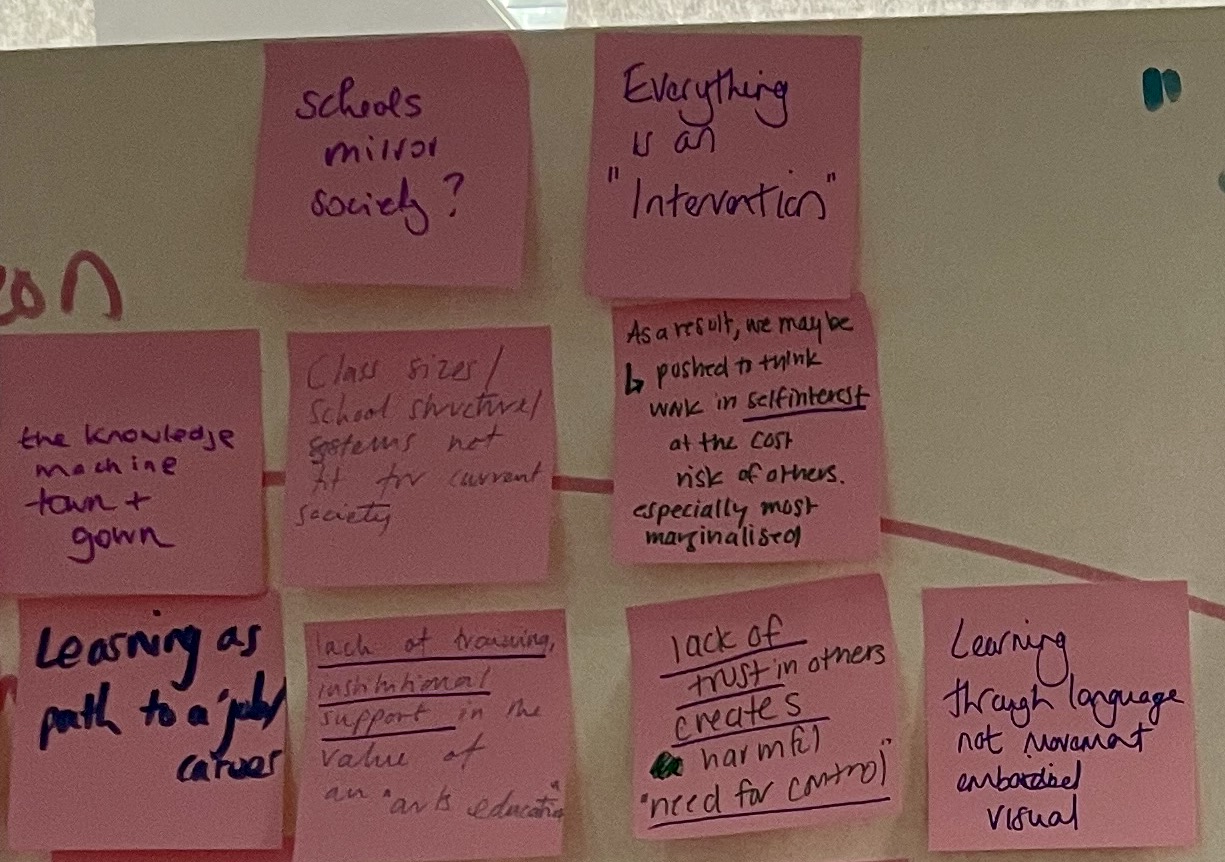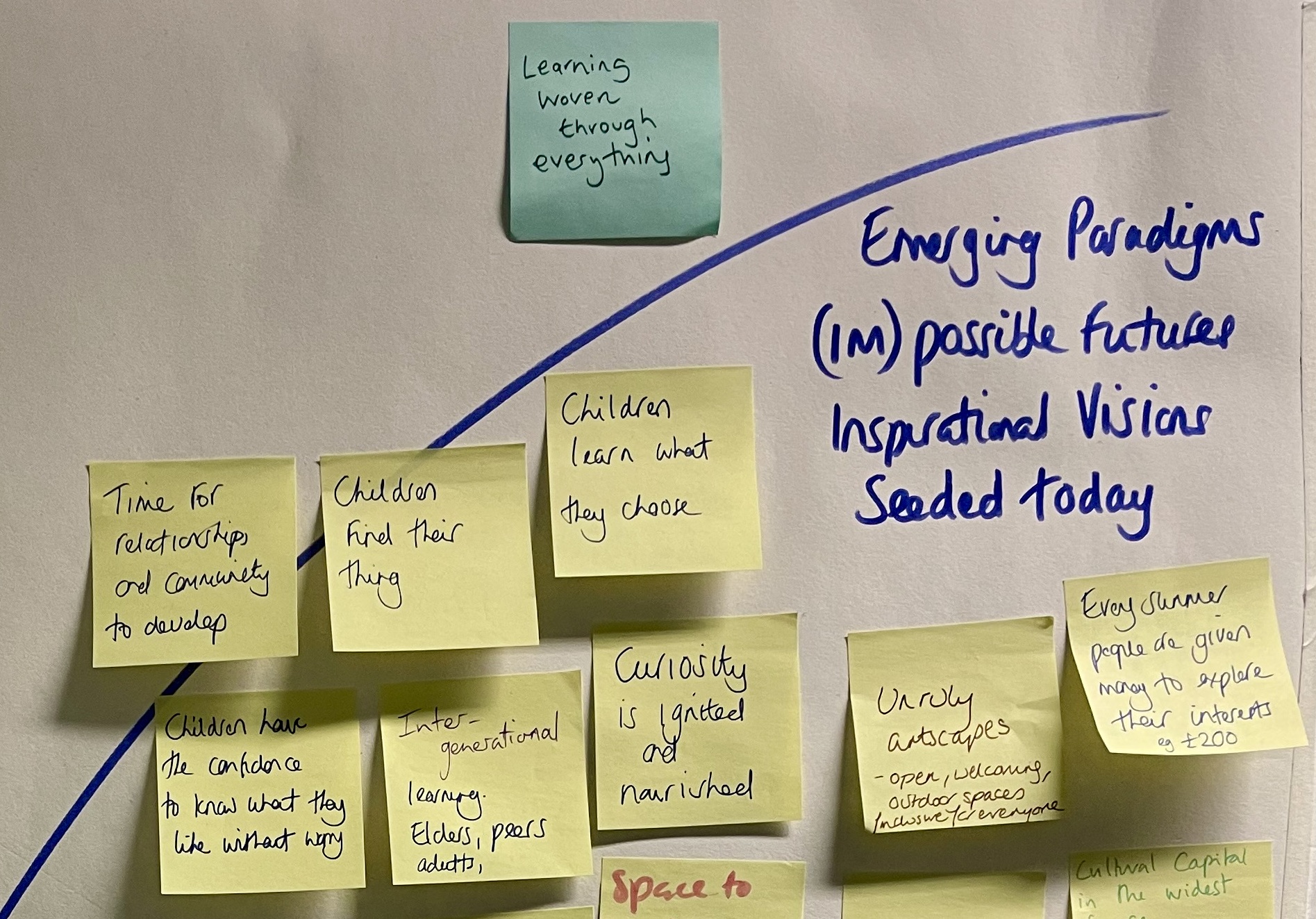Envisaging three horizons – what does the current system look like, what might be possible and how can we together imagine a new future
We gathered recently as a group of CCI stakeholders – colleagues, trustees and artists –for a Three Horizon workshop facilitated by trustees Zoe Gilbertson and Emily Dowdeswell. This offers a framework in which a group of people can come together with different ideas and imagine a new future together. The goal is to create a landscape that can help inform the next steps for an organisation.
The workshop quickly filled with reflections on the current paradigms, assumptions, and infrastructures. The role of schools and systems, the narratives around learning, and the place of the arts were raised as key concerns. We discussed how the Arts are not valued at a political or social level with an increasing lack of training and institutional support for the value of an arts education. It was felt that these forces conspire to push learners to think and focus on their individual self-interest at the cost of others, especially the most. There was a over-riding sense that school structures and systems are not always fit for purpose.

As we moved towards the second and third horizons, the conversation surfaced three prevalent patterns across the ideas and reflection shared.
- Transformation: There was a strong desire to move towards lifelong learning, outdoor learning and learning woven through everything: an ongoing, emergent process that is more embodied, creative, and expansive. In this transformed landscape, teachers would be treated as creative practitioners and co-learners building sustained flows of knowledge exchange underpinned with a deep respect for fellow learners, communities and environments.
- Community Building: There was a call for more time for community to develop, for children to develop confidence to know what they like today without worrying about the future, and for intergenerational learning with elders, peers and adults. Coherent with the idea of learning as an ongoing process, and teaching as co-learning, there was a call too for teachers to be given the time to explore their own interests
- Space to explore: Space allows for things to happen. There is a need for spaces of learning that can transform and change, which can be supported by outdoor classrooms, by dedicated time outdoors, and for unruly 'artscaping' that supports material experimentation.

The workshop showed how with time and space a new horizon is possible that makes learning more about creative flourishing, grounded in place, community and heritage. A hyper local approach to learning rooted in cultural capital in its widest sense of the meaning, where learning is centred on care for ourselves, each other and all beings.
